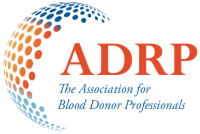Donor and non-donor perspectives on receiving information from routine genomic testing of donor blood
Authors
Rachel Thorpe, Kyle Jensen, Barbara Masser, Vera Raivola, Athina Kakkos, Kobie von Wielligh, Jonathan Wong
Abstract
Background
Genomic testing is already used by blood collection agencies (BCAs) to identify rare blood types and ensure the best possible matching of blood. With ongoing technological developments, broader applications, such as the identification of genetic markers relevant to blood donor health, will become feasible. However, the perspectives of blood donors (and potential blood donors) on routine genomic testing of donor blood are under-researched.
Study Design and Methods
Eight online Focus Groups were conducted: four with donors and four with non-donors. Participants were presented with three hypothetical scenarios about the current and possible future applications of genomic testing: Performing rare blood type testing; identifying donors with genetic markers associated with iron metabolism; and identifying donors with genetic markers associated with bowel cancer.
Results
Testing to identify rare blood types was perceived to be an appropriate application for the BCA to undertake, while identifying markers associated with iron metabolism and cancer genetic markers were only partially supported. Participants raised concerns about the boundaries of acceptable testing and the implications of testing for privacy, data security, and health insurance. Perspectives of donors and non-donors on all scenarios were similar.
Discussion
The principles of who benefits from genomic testing and the perceived role of BCAs were key in shaping participants’ perspectives. Participants generally agreed that testing should be directly related to blood donation or be of benefit to the recipient or donor. Findings indicate that consent and communication are key to the acceptability of current and expanded genomic testing.
September 9, 2022
Related Resources
Engaging blood donors as advocates Social media preferences and associations with marketing
Background: Various critical medical procedures would become impossible without blood donations—saving lives in emergencies, surgeries, and chronic conditions like thalassemia. Therefore, it seems crucial to enhance donor recruitment and ensure…
Rethinking the role of older donors in a sustainable blood supply
INTRODUCTION Many countries, particularly high human development index countries, are facing the challenge of an aging population.1 For Blood Collection Agencies (BCAs) in these countries, an aging population poses two…


